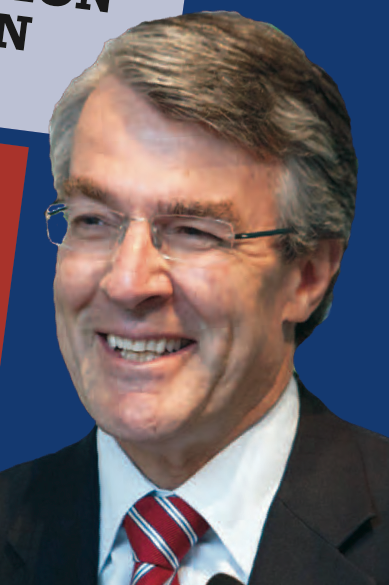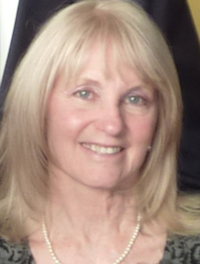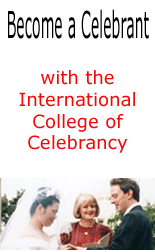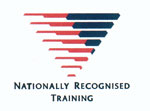From the following 28 celebrants to Mark Dreyfus QC, Attorney General
Moira Rayner, Lois D'Arcy, William (Bill) Peacock OAM, Dr Affie Adagio, Junie Morosi, John Hill, Dawn Dickson, Jan Tully, Heather J. Sharp, Michael Celeban, Nicole Celeban, Jenny Grierson, Jennafer Whelan, Dorothy Shorne, Ross Simmons, Barbara Dent, Sylvia Johnson, Bruce Kilpatrick, Janette Condon, Ellen Spalding, Don Callahan, Christine Capewell, Diane Storey, Charles Foley, Sylvia Kolarik, Lynnette Olsen, Rod Watson, Jurgen Malina, Dally Messenger
His reply can be found here. It has some heartening content. Mark Dreyfus sees our profession as
- as wholistic in that we celebrate "many important occasions" for "indviduals, couples, families and the community"
- He appears to be conscious of the excessive numbers.
- He wants increased "professionalism"
- He refers to us as "civil marriage Celebrants"
- It seems he intends to distinguish us from clergy on the webpage.
- It looks like OPD will be expanded.
Tuesday, 4 June 2013 
The Attorney General of Australia
Mr Mark Dreyfus QC
Parliament House
Canberra ACT 2600
THIS IS FOR THE PERSONAL ATTENTION OF THE ATTORNEY:
IT HAS 28 SIGNATORIES
Dear Attorney General
Re: Civil Celebrants
The Context
Prior to the Downgrading of the Celebrant Program in 2003, and the passing off of the responsibility for celebrants from the Attorney-General to an unaccountable public servant, as in the current Marriage Act, celebrants, as a professional community were motivated by high ideals. The Downgrading of 2003, and subsequent excessive and extraordinary appointment of thousands of unnecessary celebrants, and the crude mismanagement of the program, has been a serious blow to the previously steady growth of skill and professionalism.
Motivated by the sincere and passionate leadership of the founding Attorney General, Lionel Murphy, celebrants, as a group, sought to improve the level of ceremony, and its potential for making a very positive impact on family by family, in Australian society. Celebrants offered the Marriage Ceremony, provided Funeral Ceremonies for non-church people, such as had no equal in the Western world, developed the Naming Ceremony which connected newborn children to the Australian community, and had dreams of an adolescent ceremony which connected the teenagers of Australia to the family, the community and the nation.
In short, we wanted to seize the opportunity, we had, to enrich the Australian community. We mentored and taught new celebrants, as a matter of duty, and shared creative ideas at meetings, conferences and in the field. We sincerely believed (and we still do), that we were enriching Australian Cultural life, changing the infrastructure of our society for the better, and improving it at a very deep level.
At the personal and psychological level we knew we were assisting ordinary people
– to express love
– to strengthen commitments
– to give recognition to achievements
– to mark important events
– to firm up connections
– to ensure support
– to strengthen ties between families and communities
– to aid and help the grief process
– to put on record the achievements of a lifetime
- to communicate important social values in a serious way
and, to contribute to human happiness in all of the many ways ceremonies are created to achieve.
All the momentum of this was stopped by the cheapening changes of 2003, and the distressing mismanagement which followed. This mismanagement was, and still is, characterised by the deadening weight of a tsunami of legal trivia, much of it misinterpreting legal intent, which is so overstated as to be overwhelming and counter productive. Celebrants cannot keep up their skills in basic ways because, with so many celebrants, and consequently so few ceremonies per celebrant, they do not get the practice.
The 40th anniversary of the founding of civil celebrants.
(July 19, 1973 - Mrs Lois D'Arcy)
As the seventeenth celebrant appointed (February, 1974), I recently took it upon myself to suggest that there should be some kind of ceremony and celebration to mark this significant event; our 40th anniversary. So I set out to contact the first hundred celebrants appointed by Lionel Murphy. To my dismay, those who were not dead, or ill, were completely disillusioned. Many were bitter and distressed that the movement they had given many years of their life to establishing, on a dignified footing, had seen their work destroyed.
Many had resigned their commission as civil celebrants. In contrast some others, not active, simply wanted to die as celebrants to honour the things they tried to do. (May I respectfully remind you that this program is unique in the western world.) In the last ten years, to keep their appointments, they have often had to grit their teeth, and listen to ignorant people teach them "professional development", and present to them ceremonial concepts far below the standard they themselves had personally developed(1).
Leadership
We simply haven't had any leadership in the last 15 years. We have had some wonderful Attorneys General and public servants in the past. A few have had the intelligence to recognise our somewhat subliminal but radical elevation of important events in the personal lives of the Australian community. These few believed that what we were doing was worthwhile and important. But, there has been no help from the top, from either an Attorney General, or a public servant, since before the turn-of-the-century.
So what should you do, as Attorney-General, now?
(Our recommendations).
1. Please show some leadership.
In a letter to your 10,500 celebrants, articulate a vision of substance and encouragement by urging them to create and deliver high quality ceremonies. Tell them you want them to improve the quality of Wedding Ceremonies, preside at Funeral Ceremonies that pay proper tributes and console people in grief; Naming Ceremonies of quality and connection; adolescence ceremonies that join the teenager to all those in their world, a citizenship ceremonies for the eighteen year olds, which communicates new responsibilities as well as new freedoms; Winnowing Ceremonies, to honour the aged and their achievements. Etc.
2. Change the Law to make it clear that the elected Attorney-General is responsible
Legally, take those excessive powers, given to an unaccountable public servant, out of the Marriage Act and restore them to the elected minister (If you like some of the rules, they could become internal standing orders of the department, but not part of a legal infrastructure.)
3. Ask those, who realise they are not suitable, to resign.
There are some wonderful celebrants, pre 2003 and post 2003, who understand Celebrancy and who do the corporate reputation of celebrants, their government and their country, proud. I urge you to publicly call on anyone, who realises that celebrancy is not for them, to resign. Many were lured into Celebrancy by shonky "training organisations" making false promises of earning big money. They know the truth now - why stick around?
4. A Moratorium
You should then consider a moratorium on appointments, for 2-5 years, for those who have not already commenced study through a reputable educational body.
Admission to appointment by an applicant should be independently assessed by competent celebrant educationists. The new applicant should be required to pay a fee for this, and those who are not competent must be failed.
These proposals cannot be achieved by bureaucratic rules - they require interested, involved leadership at a ministerial level.
5. If you are going to have a fee, it must be non-discriminatory.
It must not be tied to a yearly "contract". Clergy and Civil celebrants are entitled to equality under the law. How you work your administration is of no consequence - it is a Commonwealth Act. Under Section 116 of the Constitution, religions must not be favoured in law!
Not very active and senior celebrants (and not very active senior clergy), should be exempt from any fees. They can be honoured by their gazetting on the website with the words "available only to their own constituency" or "limited availability", or whatever is acceptable to them.
6. The fee for new applicant celebrants
should be wholly, or partially, paid to a group of experienced celebrants of proved reputation, who should test every new applicant for ceremonial competence, general suitability, and understanding of the basic legal requirements.
7. The Code of Practice should be strengthened
It should be strengthened to express the ideal of dedicated dignified service – this dignity to be characterised by guidelines for advertising - with no concessions to cheap and misleading promotions on the part of any celebrant, or organisation, which purports to teach celebrants.
8. Scrap Nationally Registered Training
NRT has been clearly exposed (by a number of television reports,for example, on the "ABC 7.30 Report", and in many newspaper articles, which I can provide), as a flawed system. Nationally Registered Training has proved to be an educational failure, and is totally exploitable.
The market model, on which it is based, demands cheaper and cheaper courses at lower and lower standards - with the public paying for the cheapest certificate, which has the same recognition by your department as those issued by quality courses.
The 2 and 3 day courses, approved since the Downgrading of 2003, have now almost totally replaced The Victoria and Monash University courses, and other quality courses, which gave us transformative learning, genuine knowledge, attitudes and skills, and the status which went with it. The good ones are now out of the business of Celebrancy, or almost out of business.
9. Restore us as "Civil Marriage Celebrants"
Please restore our honoured community title of "Civil Marriage Celebrants". Please disentangle us from the small church clergy. They do not want it and neither do we. The public should not be confused. We should be on your website as "Civil Marriage Celebrants".
Dear Attorney-General, there is no quick fix for over ten years of desperately bad administration. The writer, and colleagues, have many other suggestions to improve this program. If you hired consultants at hundreds of thousands of dollars, this is what they would tell you to do.
We sincerely ask you to communicate personally with those celebrants, whenever they have been appointed, who have this program at heart.
Dally Messenger (and 28 co-signatories as listed below)
Foundation National Secretary* of the Association of Civil Marriage Celebrants of Australia
(at the request of Lionel Murphy).
Foundation President of the Funerals Celebrants Association of Australia (1977).
Foundation National President and Administrator of
the Australian Federation of Civil Celebrants Inc 1995 and (Life Member)
Attorney-General's Department participant in established competency standards (1995).
Principal of the International College of Celebrancy.
( www.collegeofcelebrancy.edu.au ) ( www.collegeofcelebrancy.com.au )
Co/signed / Supported by the following concerned celebrants.
Moira Rayner, Lois D'Arcy, William (Bill) Peacock OAM, Dr Affie Adagio, Junie Morosi, John Hill, Dawn Dickson, Jan Tully, Heather J. Sharp, Michael Celeban, Nicole Celeban, Jenny Grierson, Jennafer Whelan, Dorothy Shorne, Ross Simmons, Barbara Dent, Sylvia Johnson, Bruce Kilpatrick, Janette Condon, Ellen Spalding, Don Callahan, Christine Capewell, Diane Storey, Charles Foley, Sylvia Kolarik, Lynnette Olsen, Rod Watson, Jurgen Malina
Notes
1. (We became grateful for one small concession given by your predecessor, Nicola Roxon. The humiliation of every pre-2003 celebrant involved a cancellation by the Registrar of our appointments, and "the reappointment" by that Registrar on 1 September 2003. Last year Ms Roxon reversed this humiliation—so that our original dates of appointment now appear on the government website - a small but appreciated gesture.)




